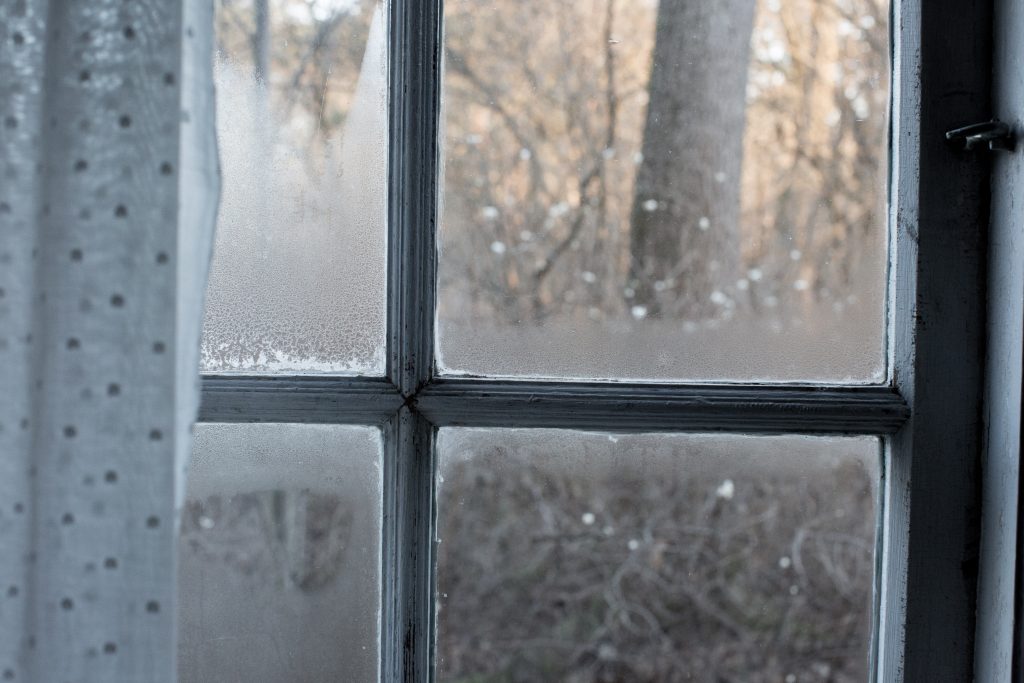Why does condensation occur and why is it bad?
Condensation occurs when warm, moist air meets cooler surfaces, for example a steamy bathroom and cold windowsill. This is particularly prevalent in winter as temperatures drop, windows get closed and households turn on their heating. The excess moisture in the air quickly condenses and homes are at risk of condensation. This all contributes to increased humidity in a home’s indoor air and without adequate ventilation, this moisture gets trapped and it creates the perfect breeding ground for mould, which can be toxic.
Tips and advice:
Zehnder’s Indoor Air Quality Expert Stuart Smith, offers tips on how to keep your home healthy this winter:
Keep extract fans turned on – many think extract fans in kitchens and bathrooms make the house cold but that’s a myth, they work to reduce moisture in the air. Be sure to check and clean the vents regularly – a hoover and dust once or twice a year should keep them in good working order.
Maintain a consistent climate – keeping a steady temperature throughout the property is key to avoiding condensation and outbreaks of mould. Avoid drying clothes indoors where possible and use extract fans in kitchens and bathrooms to remove steam from cooking and bathing.
Upgrade home ventilation – check the age of the extract fans in your home. If they are over 10 years old they might need replacing. Fan technology has come on massively and you might find a newer model will give better performance and efficiency.
Give your radiators some love – like a boiler, the rest of your home heating system needs annual maintenance too. When the heating is on check all radiators are hot from top to bottom. Cold at the top and they might have air inside and need bleeding, cold at the bottom and they might be full of sludge and need flushing by a professional. Keeping them working properly could save £50 per year on heating bills and maintain better heat output for the house.
Catch breakouts early – if you see any mould on walls or window frames tackle it as soon as possible. Wash down the affected area with warm soapy water, leave to dry then treat with a mould and mildew spray or fungicidal wash to kill the spores. Don’t just paint over it or ignore it as it will come back or spread uncontrollably. Good ventilation is vital to prevent future problems.
Keep refreshing the air – getting fresh air in and moisture out is key. As often as possible, open all your windows for as long as is reasonable. This will reduce humidity that leads to condensation and mould. Try to do this before you put the heating on so that it warms the fresh air not the stale air.
Avoid build-up of CO2 and humidity in bedrooms / living areas – when all snuggling up in the same room, carbon dioxide can quickly build up, making inhabitants feel sleepy and, in some cases, sick. It also creates excess humidity leading to condensation and damp. Having a window open – even a little – will help to extract the stale air and lower the humidity levels, meaning occupants aren’t rebreathing each others’ breath.
Invest in moisture-guzzling plants – house plants like Peace Lilies, Snake and Spider plants, Aloe Vera and Boston Ferns have been proven to reduce humidity in rooms and also have air-purifying qualities, so are an all-round indoor air quality improver.
Indoor air quality expert, Stuart Smith, comments, “Feeling cosy and staying indoors more throughout the winter months is a natural reaction to the cold, but by doing so, we could be creating a ‘sick’ environment in our homes and affecting our health.
“With Brits reported to be hunkering down to spend nine hours of the waking day indoors this winter, they need to be aware that our basic everyday activity – like making hot drinks, cooking, bathing and drying clothes inside – produces more humidity in the air leading to the risk of condensation, which can cause harmful damp and mould.
“The average family produces 24 pints of water vapour a day through routine activity but many think opening windows and turning on extract fans, which would help extract the moisture, will make their homes too cold, so don’t,” Smith continues. “People often complain of feeling run down in the winter with tickly coughs, stuffy noses and dry or itchy skin and these are all symptoms of a bad indoor climate, not just the common winter cold. Left unchecked damp and mould can do serious harm.”
“In a home, a little condensation may not seem like a big deal, but the truth is, it’s a silent indicator of potential trouble,” Smith adds. “Ignoring this seemingly harmless moisture build-up, like many do – with one in ten opting to just paint over mould breakouts – can pave the way for a host of larger issues. It’s best tackled as soon as possible so people can go back to enjoying takeaways and movies in a safe and healthy home.”
Featured Photo by Ozgu Ozden on Unsplash.



